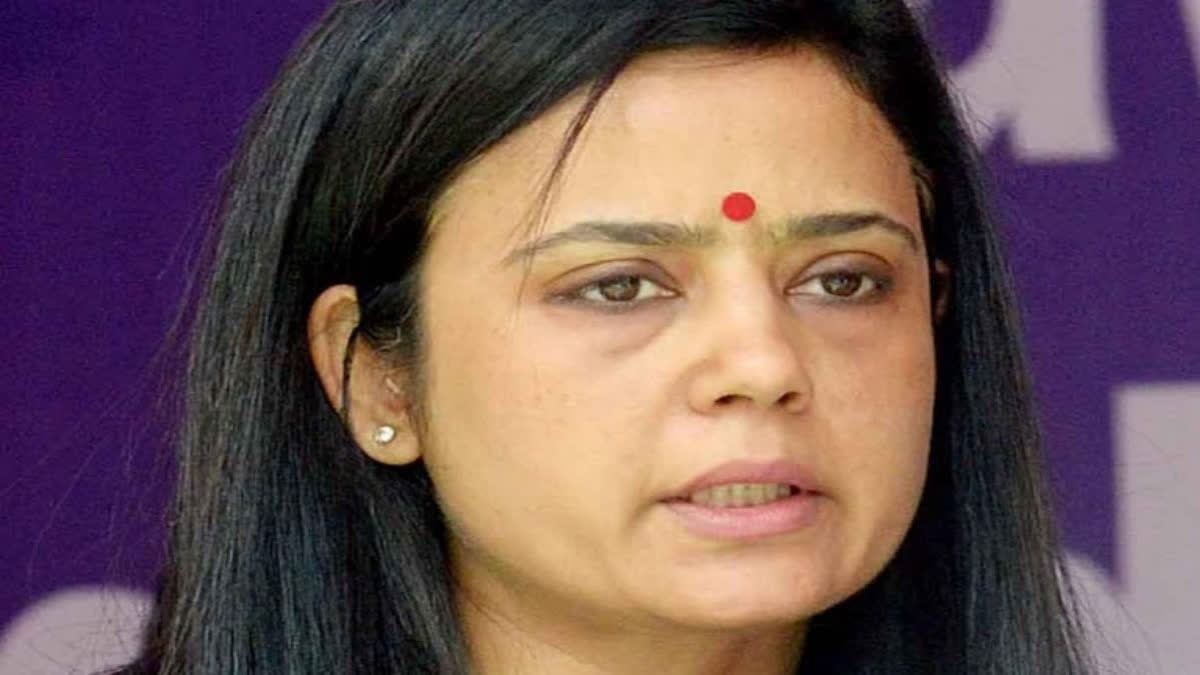New Delhi: On 8 December 2023 the Lok Sabha expelled Mahua Moitra, Trinamool Congress Member of Parliament from West Bengal, by a voice vote amidst walkout by the opposition. The report of the Ethics Committee was tabled. When the House reassembled at 2 PM, discussion on the report of the Committee was taken up amidst protests from the opposition that enough time had not been given to them to prepare for the discussion and Moitra was not being allowed to intervene. Citing the precedent of 2005, Pralhad Joshi, Minister for Parliamentary affairs, moved the motion/resolution for the expulsion of Moitra stating that her continuance as an MP was untenable as her conduct was unbecoming of an MP.
The Speaker had referred to the Ethics Committee a complaint from Nishikant Dubey, a member of the Lok Sabha, accusing Moitra of taking gifts and cash from the business house of Darshan Hiranandani in return for asking questions in the Parliament to protect its interests. She was also alleged to have shared her password with him for uploading question on her behalf on the website of the Lok Sabha. The Ethics Committee took evidence of the complainant and then of the accused, who refused to depose, deliberated on the matter and submitted its report to the Speaker on 9 November 2023.
If, for a moment, we put aside the issue of gifts and cash, a Member of Parliament cannot be faulted with for asking questions in respect of his constituents whom he represents. However, there are certain rules of the game. First and foremost, a Member of the Parliament, soon after he is elected, has to provide the details of his professional and business interests which are entered in a Register of Members’ Interests, which is available to other members for inspection on request. It is also accessible to ordinary citizens under Right to Information Act, 2005.
Further, whenever a member raises an issue in the Parliament which has any association with his professional or business interests he has to make a prior declaration to that effect. For example, if a member, who is a practising lawyer, wants to participate in a debate in which one of his client’s interest may be involved, he is required to make a declaration to that effect before making an intervention. Similarly, if a member has business interests in a company to which the question relates, he has to make a prior declaration before raising it.
Moreover, there is also a practice of prescribing a code of conduct for the Members of Parliament. While there is no definitive code of conduct for members of the Lok Sabha, there are various provisions in the rules of procedure and conduct of business in Lok Sabha for ensuring decorum and dignified conduct of members.
On the other hand, In the 'Fourth Report of the Ethics Committee' of the Rajya Sabha, which was adopted by the House on April 20, 2005, a 14-point Code of Conduct for members of the House was recommended. The Major points in this Code of Conduct are:
- If members find that there is a conflict between their personal interests and the public trust which they hold, they should resolve such a conflict in a manner that their private interests are subordinated to the duty of their public office.
- Members must not do anything that brings disrepute to the Parliament and affects their credibility.
- Members holding public offices should use public resources in such a manner as may lead to public good.
- Members should always see that their private financial interests and those of the members of their immediate family do not come in conflict with the public interest and if any such conflict ever arises, they should try to resolve such a conflict in a manner that the public interest is not jeopardized.
- Members should never expect or accept any fee, remuneration or benefit for a vote given or not given by them on the floor of the House, for introducing a Bill, for moving a resolution or desisting from moving a resolution, putting a question or abstaining from asking a question or participating in the deliberations of the House or a Parliamentary Committee.
This is, again, not the first instance when an allegation has been made for acceptance of favours by a MP for raising issues or asking questions in the House to promote the interests of a private party. Conduct of members involving corruption in the execution of their office as members is treated by the House as a breach of privilege. It would also be a breach of privilege or misconduct on the part of a member to enter into an agreement with another person, for a sum of money, to advocate the claims of such person in the House.
As early is as in 1951 an ad hoc committee of the House was appointed by the Provisional Parliament to investigate the conduct and activities of H. G. Mudgal canvassing support and making propaganda in Parliament on certain problems on behalf of that association in return for alleged financial and other business advantages. In its report the committee held that the conduct of the member was derogatory to the dignity of the House and inconsistent with the standards which Parliament was entitled to expect from its members. The committee recommended the expulsion of the member from the House. The member, submitted his resignation from the membership of the house. In a resolution the House accepted the findings of the committee and deprecated the attempt of the member to circumvent the effects of the motion expelling him from the House, by his resignation, which constituted contempt of the House and aggravated his offence.
The most notorious case arose on 12 December 2005 when a private television channel in its news bulletin carried video footage showing some members of Parliament allegedly accepting money for tabling questions and raising other matters in the House. On the same day the Speaker told the members concerned not to attend the session of the House until the matter was looked into and a decision was taken. An inquiry committee was appointed and directed to submit its report by 21 December 2005. The report of the committee was adopted by the two Houses on 23 December 2005 expelling 11 members (10 of the Lok Sabha and one of the Rajya Sabha) from the membership of the Parliament.
In certain reports in the media the words disqualification and expulsion have sometimes been used interchangeably. However they have very different connotation in the context of members of the legislature. If a Member of Parliament is disqualified after conviction or on the grounds of defection, he is debarred from contesting election for a period of six years or more. Among of the Members of Parliament disqualified in the past were J. Jayalalithaa and Lalu Prasad Yadav and recently P. P. Mohammed Faizal and Rahul Gandhi (court stay is in operation).
However, after expulsion, there is no such debarment. The Election Commission is required to fill up the vacancy in either case within six months. As the general elections are round the corner there may not be any bye-election to fill up the vacancy caused by expulsion of Moitra. She would be free to contest the coming general elections in 2024 as she has not been disqualified.


